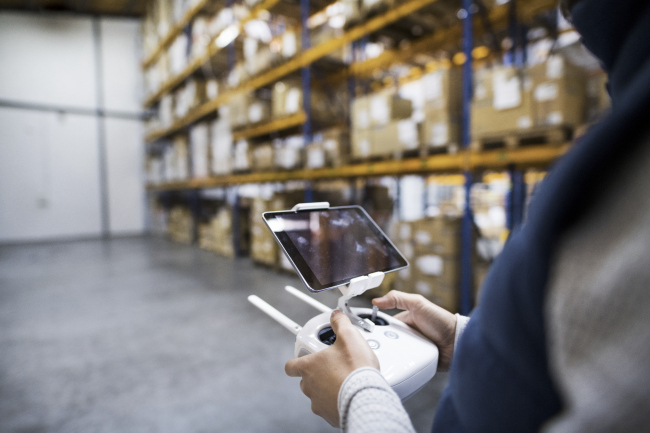Logistics in 2019

Costs of logistics are growing. To a considerable degree, it is due to the lack of employees combined with the lack of quality data for deciding and accurate planning. The so called “Amazon effect” has an effect on this as well – in recent years, it’s significantly increased customer expectations regarding speed, reliability and comfort of package delivery and as a result, significantly influenced the whole field of B2B relations. With the fact that customers expect cheap and quick delivery, business partners won’t tolerate delays or cancellation of supplies. Therefore, modern companies are forced to implement effective flexible planning which will satisfy the changing customer expectations of the current digital world.
These problems are multiplied by the fact that, while global digitalization is at its full speed, everyday tasks in various enterprises are still mostly based on “low-tech” solutions, such as physical delivery confirmation or inefficient email and phone communication. According to the report of PricewaterhouseCoopers from 2018, only 10% of companies belong to the highest category in terms of digital technology utilization, they are called the “digital champions”. The report also showed that 2/3 of manufacturing enterprises haven’t begun their digital transformation yet.
What Technologies Offer a Solution?
This year, new technologies, such as the internet of things or artificial intelligence, will offer all industrial enterprises a unique opportunity to deal with the ongoing changes and get a competitive advantage. Let’s dive into the 5 technological trends in logistics that have the greatest potential.
Internet of Things
Currently, it is estimated that there is approximately 25 billion connected devices and this number will triple by 2025. Global digitalization is well on its way, and on the field of logistics, this trend will continue and also encourage providers of logistic services to implement digital solutions more intensively . Therefore, companies will be able to maximally utilize the potential of the internet of things, thanks to digitalization and interconnect individual devices (pallets, trucks, containers, …) within the whole scope of their chain and therefore, collect data in real time. Thanks to that, they will be able to digitize everything from inventory, fleet management, barcode scanning and package tracking to customer service.
Artificial Intelligence and Data Analysis
Artificial intelligence and data analysis are getting better every day. Therefore, employees are able to make decisions competently based on data without any special training. These technologies enable processing structured and unstructured data acquired from logistic operations and help people interpret this data, automate decision making and thus, improve the performance of logistic operations.
Automation
Within supply chains, robots, such as Kiva used in Amazon, are engaged more and more often. They are a modern automated alternative to the reliable, widely used forklifts. These robots bring a significant increase in effectivity and speed and therefore, pressure on other companies is rising as well – they should adapt to these trends.
Blockchain
Last year, logistic management field was mature enough for implementation of the blockchain technology. This year, application of this technology will continue mainly in the field of decentralized logistic chains and functions, such as traceability or authentication. Blockchain is especially suitable within logistics, because more players can benefit from it at once: manufacturers, carriers, customers, suppliers, auditors and others. This technology enables customers and suppliers to track packages and auditors to control individual transactions. And because the information saved in blockchain can never be changed, this technology is completely safe and can’t be manipulated by third parties. According to the research, 20% of companies is already using blockchain. Among the pioneers, there are Maersk and IBM – they’ve introduced a technology based on blockchain just recently.
Application Interface
Applications enable logistic operators to effectively communicate the data through devices that are using the internet of things. In real time, internal teams and third parties as well. Utilization of these applications secures that the correct piece of information gets to the correct people at the correct time and in the correct quality. Currently, this requirement is dealt with significantly inefficiently and requires extensive engagement of human resources.
Closing Thoughts
Logistics costs, as well as customer expectations are growing rapidly. In response to this situation, many enterprises are looking for a suitable technology that would help them deal with these pitfalls. However, keeping up the pace with the quick changes of technologies is quite difficult and the risk of a wrong investment is high. Until a company decides for a specific solution, it’s necessary to consider all the factors and for example, using simulation techniques, test individual development variants. Only this is the right way to competently decide, select the optimal development option and therefore, achieve the maximum effectivity.
Related articles
Jul 11, 2024
Europe’s wind power industry relies on digital technologies
Europe’s wind power industry relies on digital technologies
Jul 11, 2024
Application for WMS? Vysoká efektivita, rychlé aktualizace, maximální variabilnost
Application for WMS? Vysoká efektivita, rychlé aktualizace, maximální variabilnost
Jun 7, 2024